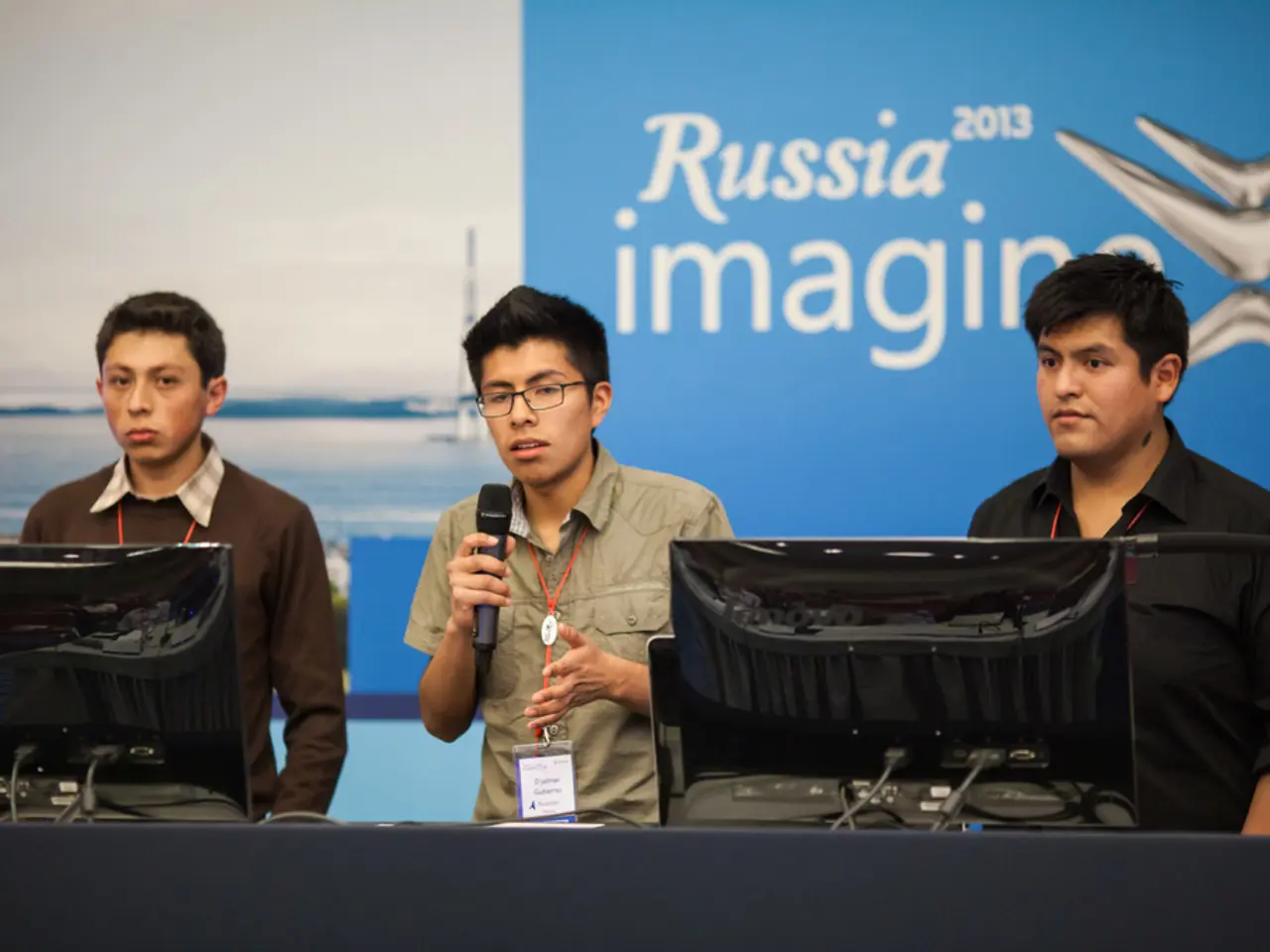Creative Brainstorming Strategies Debated in Nizhny Novgorod Academic Circles
In the heart of the Nizhny Novgorod region, an event titled "Thinking that Drives Innovations" took place on August 8, 2025, as part of the regional program of Russia's Decade of Science and Technology. The discussion, organised by the government of the Nizhny Novgorod region, the Presidential Academy of National Economy and Public Administration, SberUniversity, and the authors of the "Science in Nizhny" project, aimed to encourage innovative thinking in academic and research environments.
The event focused on practical questions, including how to translate scientific discoveries into economically valuable products. One of the key focuses was building a team capable of creating breakthrough solutions. Katherine Solntseva, Deputy Chairman of the Government of the Nizhny Novgorod region and a candidate of technical sciences, emphasised the strategic focus of the region on supporting both scientific activities and the conditions for scaling their results.
Alexei Sukhanov, Pro-Rector of SberUniversity for Research and Innovations and a candidate of economic sciences, spoke about the qualities needed to create innovations. He highlighted the importance of thinking that can generate non-standard ideas, the courage to propose them, and the persistence for their implementation.
Ekaterina Lebedeva, Director of the Presidential Academy's Higher School of Economics, emphasised the need to reevaluate approaches to innovative thinking and education of future scientists and engineers. She stressed the importance of going beyond narrow profiles and seeing work as part of larger changes, which is how truly breakthrough projects are born.
The Decade of Science and Technology, extending from 2022 to 2031, is aimed at attracting talented youth to research and development. The regional program includes various activities like lectures, exhibitions, festivals, and digital services, such as the "Nizhny Bot" chatbot, aimed at popularizing science and engaging youth in research activities.
The need for transdisciplinary skills is highlighted in this initiative to help create new things at the intersection of existing academic disciplines. Special attention was given to developing young specialists' skills in interdisciplinary teams, flexible thinking, interaction with industrial partners, and management in scientific activities.
This event, while not providing explicit details about its agenda or discussion, aligns with Russia's strategic priorities during the Decade of Science and Technology. The approaches emphasised include the integration of advanced technologies, promotion of scientific publication and open knowledge exchange, development of ecosystem support for innovation hubs and startups, emphasis on interdisciplinary research and applied science, and educational reforms and workshops that encourage critical and creative thinking skills.
These strategies aim to leverage technological advances, foster collaboration, encourage knowledge dissemination, and prepare researchers to think innovatively in their scientific endeavours. For more precise details directly from the event proceedings, additional sources or direct event documentation may be necessary.
[1] Integrating AI in Research and Development [2] Promoting Open Knowledge Exchange in Science [3] Supporting Innovation Hubs and Startups [4] Emphasis on Interdisciplinary Research and Applied Science [5] Educational Reforms and Workshops
- The event in Nizhny Novgorod, focused on encouraging innovative thinking, discussed the importance of integrating AI in Research and Development for education-and-self-development, especially in the context of lifelong-learning.
- In line with Russia's strategic priorities, the discussion at the event highlighted the need for educational reforms and workshops, fostering critical and creative thinking skills essential for online-education and approaching interdisciplinary research and applied science.




